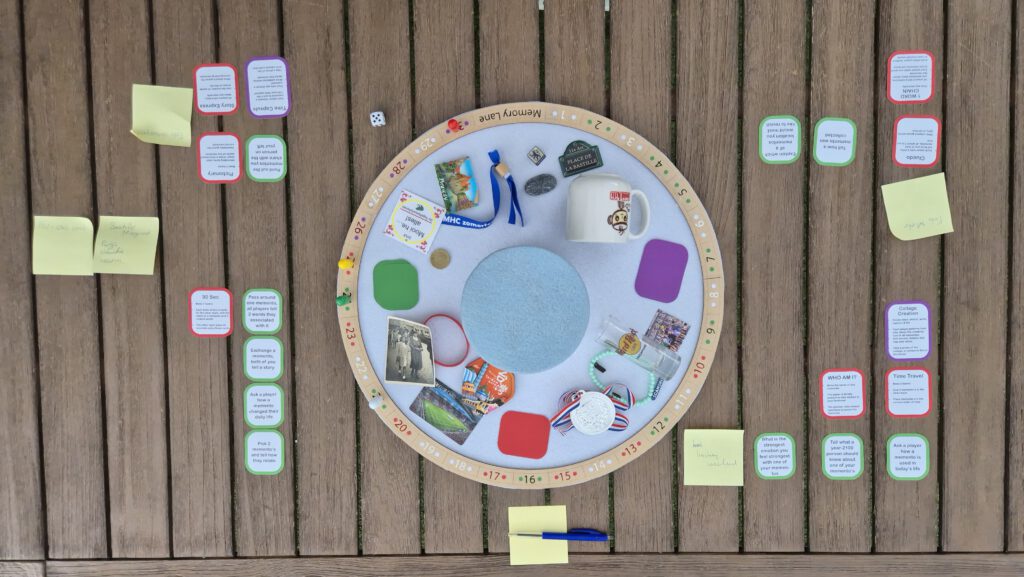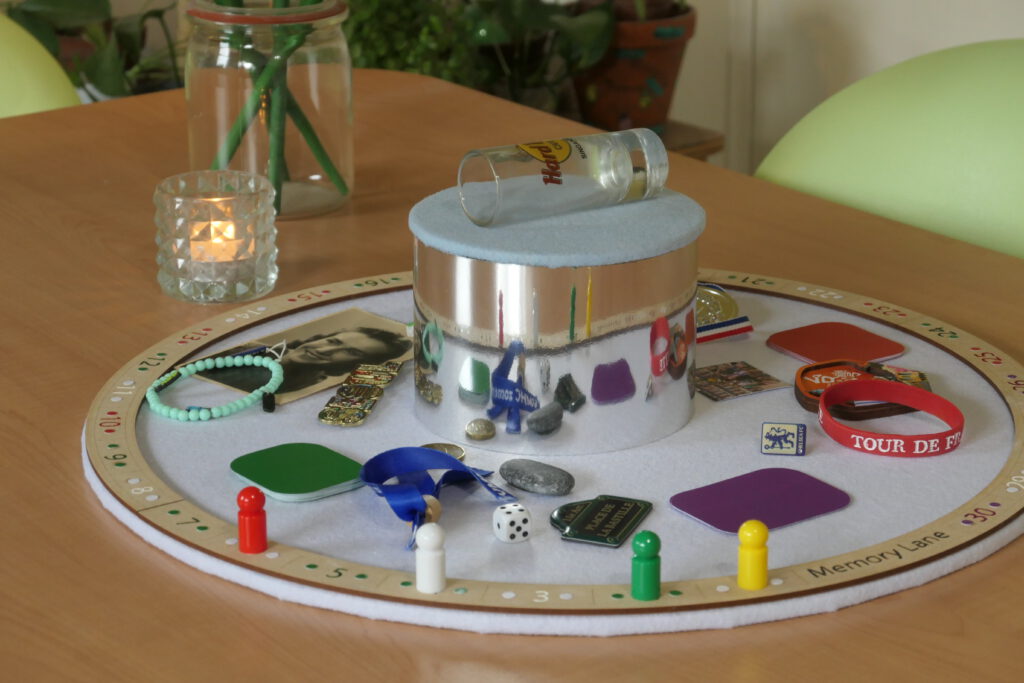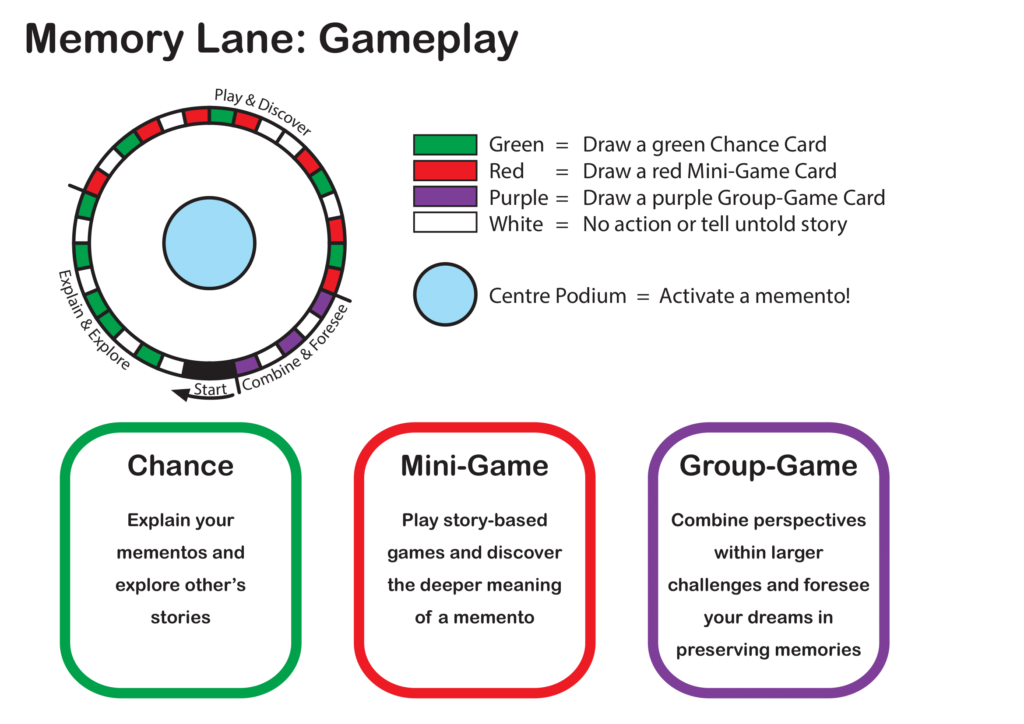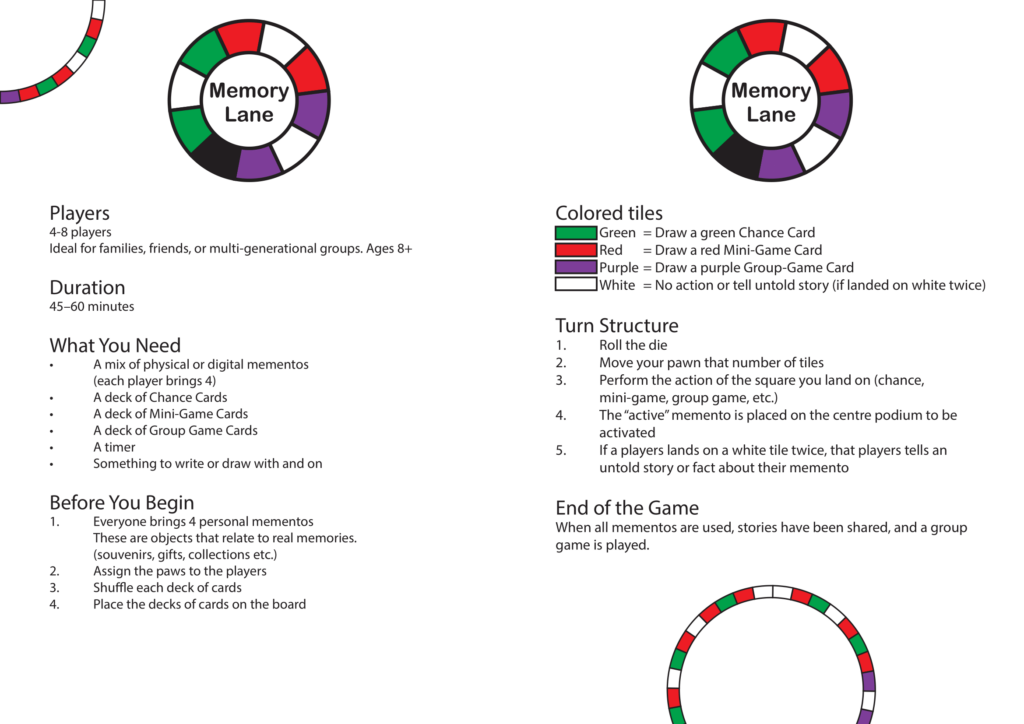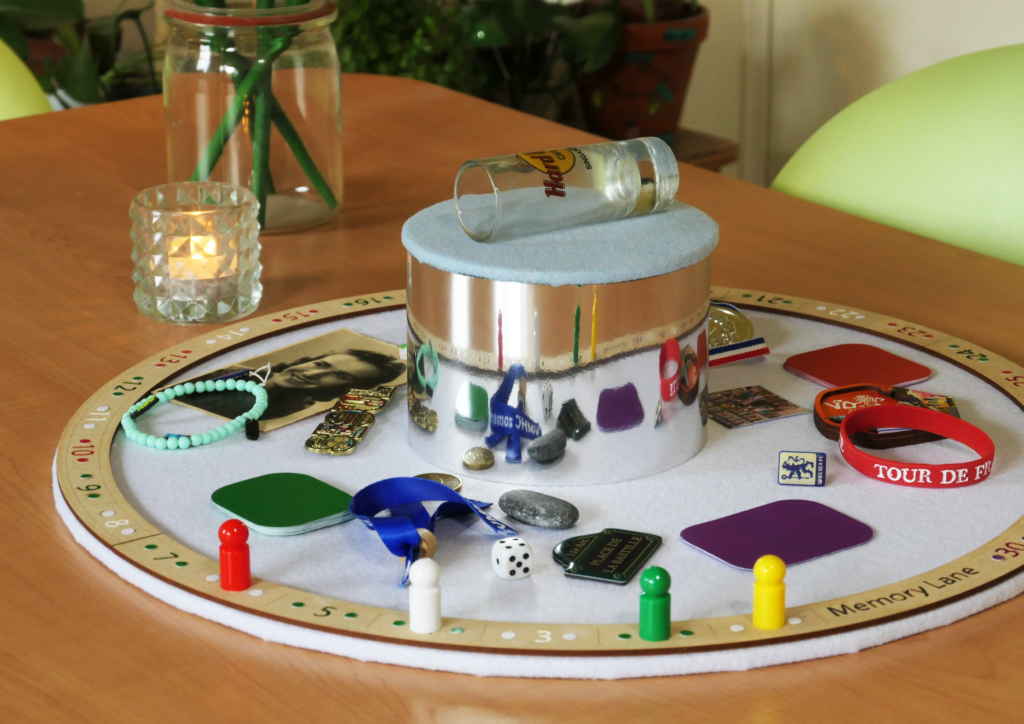
Memory Lane is an interactive board game for the family home. The Final Bachelor Project explores opportunities to foster family values, questioning what makes you feel like home? Personal mementos are used as anchor points for the design, triggering story-telling, expression, appreciation and further emotion. The game evolves in three phases, each adding more depth to the approach of memories. Chance card prompt introduces the individual mementos, revealing the history and emotion relationship. Mini-games allow for playful discovery about deeper meanings of the mementos in team-based challenges. Group-games shape the final phase of the game, these need co-orperation and creativity to ensure preservation of mementos and their memories.
The design project is derived from the challenge of “The Good Home”, which questions how households maintain their unique family values in the future. Early stages of the project analysed paper research and taught what makes a house a family home: uniqueness of shared memories. Meanwhile, households face rising trends of individualism and digitalization which threaten familiarity and thriving values.
The project aimed to counter these trends, by fostering the core family value of shared memories of a family. Mementos are items which physicalize memories, forming anchor points for recalling experiences and sharing memories. Early stages of the project analysed paper research and taught what makes a house a family home: uniqueness of shared memories. What followed were user interviews, to get a better understanding about family uniqueness and memory sharing. These interviews highlighted the value of preserving memories, difficulty in memento-management, and the power of physical mementos. Together with the aforementioned paper research, I learned to dive deeper into a unique social aspect, outlining the family home with values and qualities. More about family relationships was revealed by an expert (family psychologist), who taught me about the caution of family conflicts and the risk of negative memories.
Exploratory conceptualizing, combining existing game elements and the valuable mementos, shaped further iterations. I learned about MDA game design (Hunicke, LeBlanc & Zubek, 2004) which I incorporated into the design by adjusting game mechanics based on desired game aesthetics (expression, fellowship and sensation). Playing the game with multiple groups in a trial & error practice, fine-tuned the game mechanics for more fluency and triggers for story-telling. Conceptual data sharing helped to enhance the “relive” aspect of the game, teaching me about potential data streams and the data’s ability to add dimension to the design. The making of the final prototype learned me to use various materials and production methods like 3D printing and laser-cutting. NFC tags, a reader, an MP3 module and further Arduino technology was used in the final demo, playing songs and showing imagery related to activated mementos. The concept brand of Memory Lane was created, with a logo, merchandise and brand detailing teaching me to showcase the marketing potential of the design.
